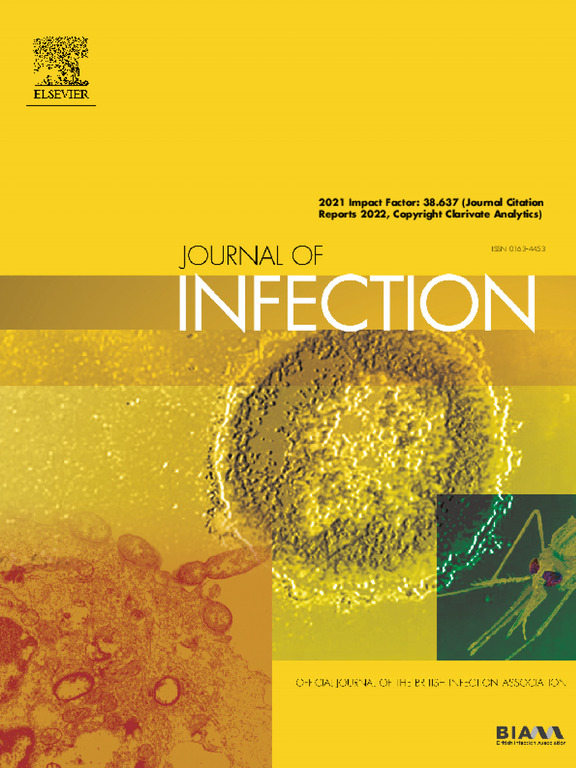The effect of pre-COVID and post-COVID vaccination on long COVID: A systematic review and meta-analysis
IF 14.3
1区 医学
Q1 INFECTIOUS DISEASES
引用次数: 0
Abstract
Background
Long COVID affects millions of people and results in a substantial decrease in quality of life. Previous primary studies and reviews attempted to study the effect of vaccination against long COVID, but these studies varied in the cut-off time of long COVID. We adhered to the WHO’s definition of long COVID and conducted a systematic review and meta-analysis on the effect of pre-COVID and post-COVID vaccination on long COVID.
Methods
We obtained data from 13 databases up to 18 February 2024, including peer reviewed and preprint studies. Our inclusion criteria were: (1) long COVID definition as 3 months or beyond, (2) comparing long COVID symptoms between vaccinated and unvaccinated groups, (3) subjects received vaccinations either before or after infected with COVID, (4) the number of doses received by participants was specified. We extracted study characteristics and data and computed the summary odds ratio (OR) with the DerSimonian and Laird random effects model. We then performed subgroup analyses based on the main vaccine brand and long COVID assessment method. ROBINS-I framework was used for assessment of risk of bias and the GRADE approach was used for evaluating the certainty of evidence.
Findings
We included data from 25 observational studies (n = 14,128,260) with no randomised controlled trials. One-dose pre-COVID vaccination did not have an effect on long COVID (number of studies = 10, summary OR = 1.01, 95% CI = 0.88–1.15, p-value = 0.896). Two-dose pre-COVID vaccination was associated with a 24% reduced odds of long COVID (number of studies = 15, summary OR = 0.76, 95% CI = 0.65–0.89, p-value = 0.001) and 4 symptoms (fatigue, headache, loss of smell, muscle pain) out of 10 symptoms analysed. The OR of three-dose pre-COVID vaccination against overall long COVID was statistically insignificant but was far away from 1 (number of studies = 3, summary OR = 0.31, 95% CI = 0.05–1.84, p-value = 0.198). One-dose post-COVID vaccination was associated with a 15% reduced odds of long COVID (number of studies = 5, summary OR = 0.85, 95% CI = 0.73–0.98, p-value = 0.024). The OR of two-dose post-COVID vaccination against long COVID was statistically insignificant but was far away from 1 (number of studies = 3, summary OR = 0.63, 95% CI = 0.38–1.03, p-value = 0.066).
Interpretation
Our study suggests that 2-dose pre-COVID vaccination and 1-dose post-COVID vaccination are associated with a lower risk of long COVID. Since long COVID reduces quality of life substantially, vaccination could be a possible measure to maintain quality of life by partially protecting against long COVID.
接种疫苗前和接种疫苗后对长期慢性病毒性反应的影响:系统回顾和荟萃分析。
背景:长COVID影响着数百万人,并导致生活质量大幅下降。以往的主要研究和综述试图研究接种疫苗对长COVID的影响,但这些研究在长COVID的截止时间上各不相同。我们根据世界卫生组织对长COVID的定义,对COVID前和COVID后接种疫苗对长COVID的影响进行了系统回顾和荟萃分析:我们从 13 个数据库中获取了截至 2024 年 2 月 18 日的数据,包括同行评审和预印本研究。我们的纳入标准是(1)将长COVID定义为3个月或以上;(2)比较接种疫苗组和未接种疫苗组之间的长COVID症状;(3)受试者在感染COVID之前或之后接种疫苗;(4)明确参与者接种疫苗的剂量。我们提取了研究特征和数据,并使用 DerSimonian 和 Laird 随机效应模型计算了总的几率比(OR)。然后,我们根据主要疫苗品牌和长 COVID 评估方法进行了亚组分析。ROBINS-I 框架用于评估偏倚风险,GRADE 方法用于评估证据的确定性:我们纳入了 25 项观察性研究(n=14,128,260)的数据,其中没有随机对照试验。COVID前一剂疫苗接种对长COVID没有影响(研究数量=10,总OR=1.01,95% CI=0.88-1.15,P值=0.896)。接种两剂COVID前疫苗与长COVID几率降低24%有关(研究数=15,总OR=0.76,95% CI=0.65-0.89,P值=0.001),在分析的10种症状中,有4种症状(疲劳、头痛、嗅觉减退、肌肉疼痛)与长COVID几率降低有关。接种三剂 COVID 前疫苗对总长 COVID 的 OR 值在统计上不显著,但与 1 相差甚远(研究数量 = 3,总 OR = 0.31,95% CI = 0.05-1.84,p 值 = 0.198)。COVID后接种一剂疫苗与长COVID几率降低15%有关(研究数=5,总OR=0.85,95% CI=0.73-0.98,P值=0.024)。COVID后接种两剂疫苗预防长COVID的OR值在统计学上不显著,但与1相差甚远(研究数=3,汇总OR=0.63,95% CI=0.38-1.03,P值=0.066):我们的研究表明,接种前接种 2 剂 COVID 疫苗和接种后接种 1 剂 COVID 疫苗与较低的长 COVID 风险相关。由于长COVID会大大降低生活质量,接种疫苗可以部分预防长COVID,从而保持生活质量。
本文章由计算机程序翻译,如有差异,请以英文原文为准。
求助全文
约1分钟内获得全文
求助全文
来源期刊

Journal of Infection
医学-传染病学
CiteScore
45.90
自引率
3.20%
发文量
475
审稿时长
16 days
期刊介绍:
The Journal of Infection publishes original papers on all aspects of infection - clinical, microbiological and epidemiological. The Journal seeks to bring together knowledge from all specialties involved in infection research and clinical practice, and present the best work in the ever-changing field of infection.
Each issue brings you Editorials that describe current or controversial topics of interest, high quality Reviews to keep you in touch with the latest developments in specific fields of interest, an Epidemiology section reporting studies in the hospital and the general community, and a lively correspondence section.
 求助内容:
求助内容: 应助结果提醒方式:
应助结果提醒方式:


